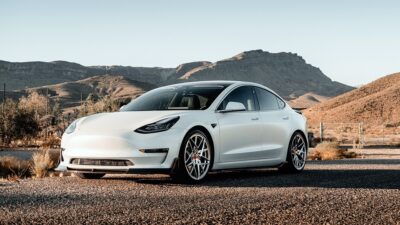As the automotive industry evolves at a breakneck pace, the debate between electric vehicles (EVs) and traditional gas-powered cars continues to gain traction. Each vehicle type has its own set of advantages and disadvantages, making the decision a highly personal one. Whether you’re concerned about the environment, fuel economy, cost of ownership, or performance, understanding the key differences can help you choose the right vehicle for your needs. Let’s explore the factors that matter most.
Environmental Impact
Electric Vehicles
EVs are often touted as the more environmentally friendly option. They produce zero tailpipe emissions, which significantly reduces air pollution, especially in urban areas. The overall carbon footprint of an EV largely depends on how the electricity used to charge it is generated. In regions where renewable energy sources like wind or solar dominate the energy grid, the environmental benefits are even greater.
Gas-Powered Vehicles
Gasoline vehicles, on the other hand, emit greenhouse gases and other pollutants during operation. While advancements in fuel efficiency have helped reduce emissions, they still contribute to climate change and air quality issues.
Cost of Ownership
Electric Vehicles
While the upfront cost of purchasing an EV can be higher due to the price of batteries, many qualify for government incentives, tax credits, and rebates that can mitigate this expense. Additionally, EVs have lower operating costs—electricity is generally cheaper than gasoline, and they require less maintenance due to fewer moving parts.
Gas-Powered Vehicles
Gas vehicles typically have lower initial costs, especially in entry-level models. However, ongoing expenses, such as fuel and maintenance (oil changes, exhaust system repairs, etc.), can add up. Fuel prices can be volatile, leading to unpredictability in long-term ownership costs.
Performance and Range
Electric Vehicles
EVs often deliver impressive torque and acceleration, leading to a smooth and responsive driving experience. However, one of the most significant concerns for potential buyers is range anxiety—the fear of running out of battery before reaching a charging station. Fortunately, advancements in battery technology are extending the range of many EV models, with some exceeding 300 miles on a single charge.
Gas-Powered Vehicles
Gasoline engines generally offer longer range on a full tank compared to many EVs and can be refueled quickly at any gas station. This makes them more suitable for long-distance travel, especially in areas with limited charging infrastructure.
Charging Infrastructure
Electric Vehicles
The charging infrastructure for EVs is rapidly expanding. Home charging stations can be installed for convenient overnight charging, but public charging stations are still less ubiquitous than gas stations. Fast chargers are becoming more common, allowing for quicker recharging, but the accessibility of charging points can vary significantly from region to region.
Gas-Powered Vehicles
Gas stations are widely available, making refueling a straightforward process—even in remote areas. This ubiquity is a significant advantage, particularly for those who frequently travel in less populated regions.
Lifestyle Considerations
Electric Vehicles
If you have a daily commute that falls within the range of an EV, and you have convenient access to charging (either at home or work), an electric vehicle may be an excellent fit for your lifestyle. Additionally, EV owners often appreciate the quiet, smooth ride and the advanced technology features commonly found in modern electric cars.
Gas-Powered Vehicles
For those who regularly engage in long-distance travel or live in areas where charging infrastructure is limited, gas-powered vehicles may be more practical. Families or individuals who need to transport multiple passengers or heavy loads on a frequent basis may also find traditional cars more accommodating.
Conclusion
The choice between electric and gas-powered vehicles ultimately depends on your personal preferences, driving habits, and lifestyle. If you’re looking for an environmentally friendly option with lower ongoing costs and you have a predictable routine, an electric vehicle may be the right choice for you. Conversely, if you value long-range, quick refueling, and often drive in less charger-friendly areas, a gas-powered car might be more suitable.
As technology continues to improve and the automotive landscape evolves, the lines between these two options may blur even further. Regardless of your choice, understanding the trade-offs can help you make an informed decision that fits your unique needs.



